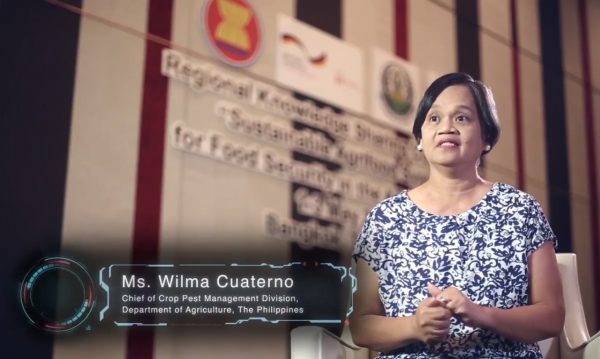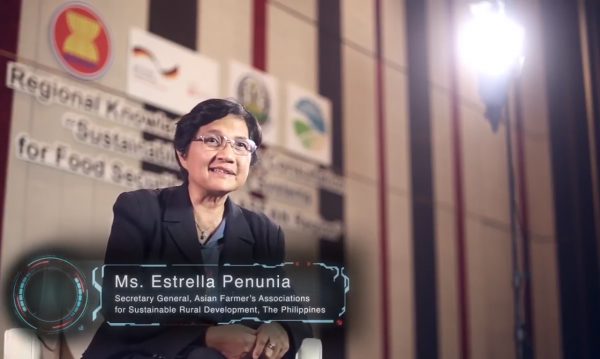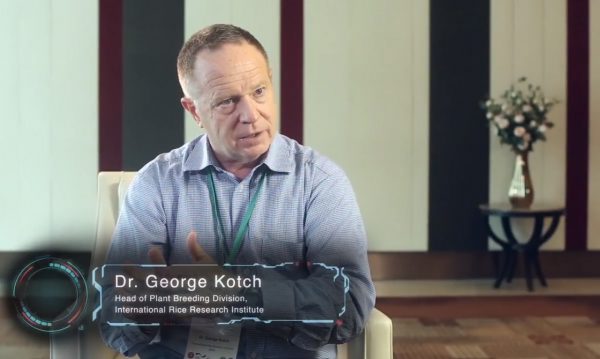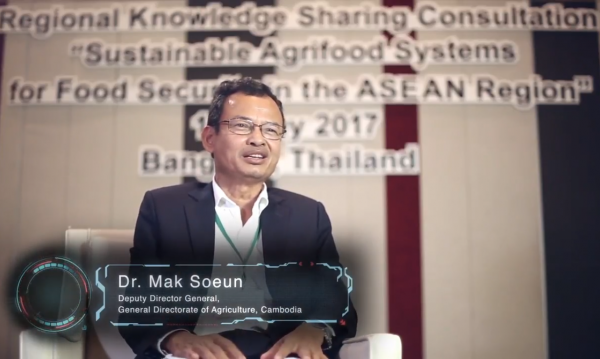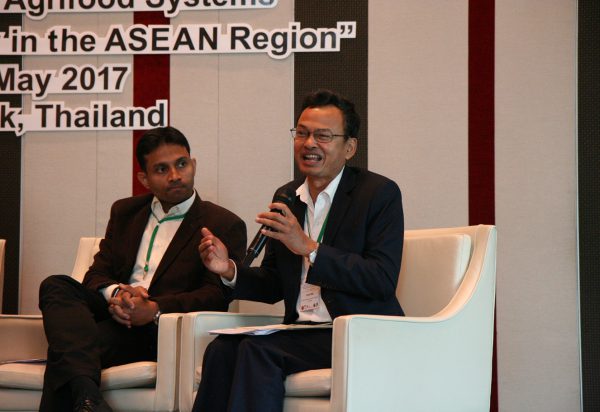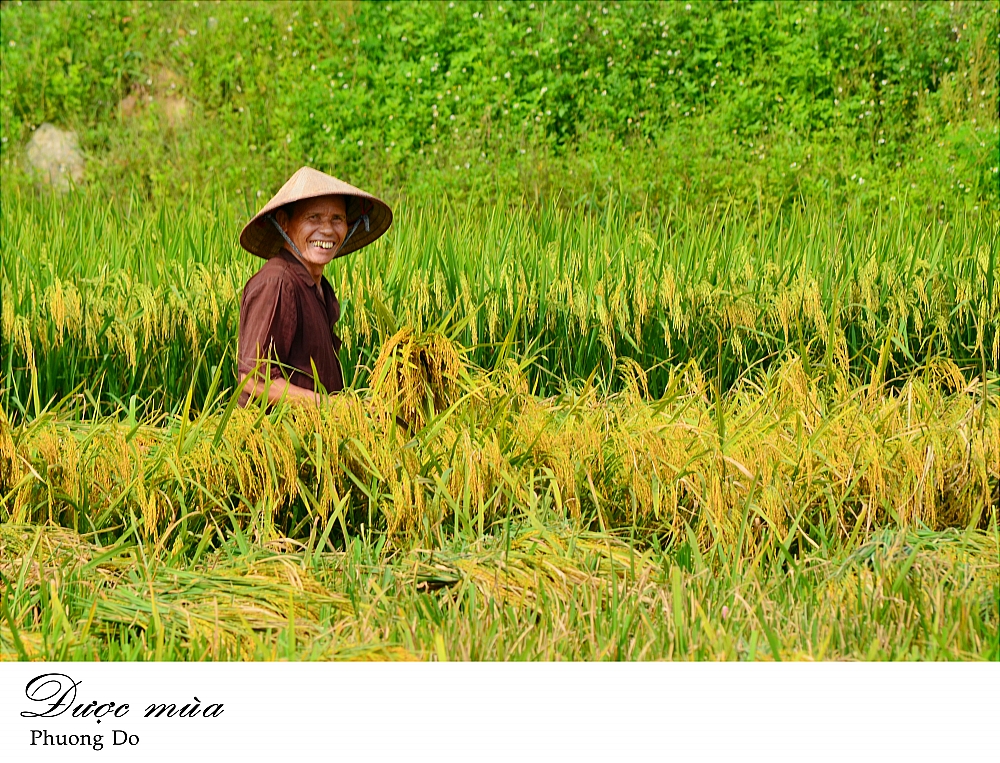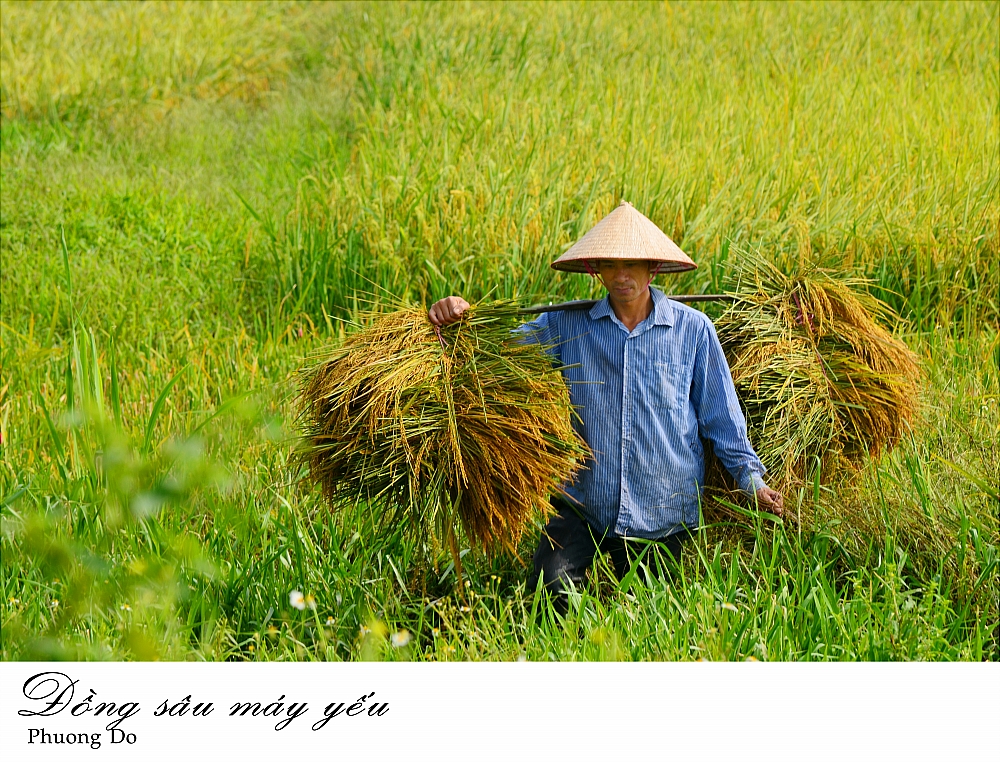The world is beautiful even though our planet today is home to 7.5 billion people, a number that in 30 years from now will stand at 9 billion. Asia alone accounts for 4.5 billion of the global population.
The world is beautiful even though today 1 in 9 individuals suffers from hunger, and 3 million children die of hunger every year, this despite the fact that we produce 1.5 times more food than the total population. More than half of the hungry people live in Asia.
The world is beautiful even though one third of the food that we produce for human consumption is lost or wasted every day. This means a third of our resources – soil, water, energy, labour and cash – are lost for nothing. In Asia, about 40 per cent of the losses occur at the post-harvest and processing levels.
The world is beautiful. But we need sustainable agrifood systems and everybody’s involvement to maintain it.
“We need to all realise that the natural environment and the ecosystem is not our property. It is for the next generation. We must take care of it so the next generation will benefit just as we do now. If we are selfish, there will be no next generation.”
“We need political will from the policy makers, and we also need to unleash the potential of farmers through their organisations. Who plants our food? It is the farmers: it is not the government, it is not the ministers, it is not the company, it is the farmers.”
“One of the biggest challenges that we in the agrifood systems face is an imbalance of strength in the chain. Some links are strong, but not as strong as other components. We need to step back, look at the chain, and bring our methodologies to the entire chain rather than address one individual component. Acting independently will have very little impact. We have to do this not only at the local level but at the regional level. That’s where the greatest impact will be felt. The local level is good but not sustainable. The regional level is a powerful network.”
“Policy can involve many stakeholders and many agencies. We need to be in harmony, to raise awareness and adopt an integrated approach if we are to implement a win-win situation. Policy dialogue is very important. If we have a good plan and good organisation, we do not waste time and money. We need to raise awareness, to make all the stakeholders understand. I want to see our country increase GDP per capita, its people generate more income, enjoy better and safer food and have good health through the sustainable agrifood system. I would like to see my country developed.”
Mr. Satish Thampy, Managing Director, OLAM Thailand Ltd. (left)
“One of the biggest challenges when we talk about sustainability is the belief that sustainability comes only with premium products. In fact, sustainability should be part of what we do. Sustainability should come with a reduction in the costs for the people who choose to operate sustainably. Reduce the costs and continue to offer the same product at the same price.”
Because the world is beautiful…
Watch the interviews with key players in the food value chain from the government and private sectors, research institutes and farmers association in ‘ASEAN 101: ASEAN for the Next Generations’ at www.asean-agrifood.org/asean-101-asean-for-the-next-generations/. The five-minute video reflects challenges that could possibly put an end to the agrifood production in ASEAN and the beautiful world.
GALLERY

